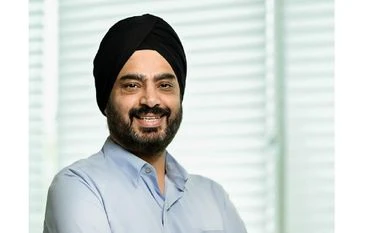MobiKwik Co-founder and Chief Executive Officer Bipin Preet Singh says the Reserve Bank of India’s recent approval of a merger proposal of a fintech and a small finance bank shows that fintechs have arrived to make a mark in the country’s banking landscape. In an online interview with Manojit Saha for Business Standard’s The Banking Show, Singh indicates that an initial public offering (IPO) is on the cards. Edited excerpts:
MobiKwik reported profit for the second consecutive quarter during July-September (Q2). Which part of your business is generating most of the profit?
For the past many years, we have had this vision of growing MobiKwik into a digital banking platform, where a customer comes to make payments, but eventually, gets access to all kinds of financial products, starting with credit. In credit, we have two products: pay later and personal loans.
For now, loan services contribute a good part of the profit, I would say around 60 per cent. Payments obviously are bread and butter, and touch the largest number of users, so that continues to grow. In addition, we are building our investment/wealth vertical where we are interested in providing products that can help users get higher returns than the market.
Recently, a fintech was given a no-objection certificate from the Reserve Bank of India to merge with a small finance bank. How do you see this development?
I think it's an excellent development. When we started MobiKwik, there was no such thing as a fintech. For a market like India, trust is very important. Technology companies, including startups, have had to earn that trust because they don't have the implicit trust that comes from being a bank.
This merger actually signifies that fintechs have arrived. It means that they have the right to play in the financial services market in a major way, and they can be trusted the same way as you can trust banks. I see this as a very positive sign from the regulatory and ecosystem point of view.
Have you thought of entering the banking sector? Because the licensing process has been simplified now, which is available on a tap.
Currently, we are focused on playing on our strengths, which are technology, and building a large profitable business by working with banks as well as non-banks and NBFCs (non-banking financial companies) for loans.
But essentially, our role, the way we see it, is more of an intermediary. We actually just transfer money from one place to another. We just take money from one account and put it into another account. Holding money in the account as deposits as a bank and building that institution is altogether a different game. However, we have also gone to a different level in terms of the scale at which we operate. We have done tremendously well in being profitable and scaling up the business. But we will look at whether there is an opportunity for something like this in the future. But as of now, there is no such plan.
Now that MobiKwik is making profits, do you think it's time to derive the IPO plan?
We have maintained that we are going to go public. In 2021, we had filed for the IPO, and we came very near to going public. In the process, we did all the steps necessary: corporate governance, independent board, shareholding, accounting, etc. We continue to follow those standards. We believe we can go public anytime we wish to. But as of now, what we are looking at is that we need to demonstrate an important thing for the markets. Because in the markets, the startups are still considered companies that are cash-burning, unprofitable, and just using investor money. That perception needs to change. We are trying to change that by building a business that has both the elements: growth as well as profitability. We are thinking that we will maintain this for a few more quarters before taking a call.
Unlock 30+ premium stories daily hand-picked by our editors, across devices on browser and app.
Pick your 5 favourite companies, get a daily email with all news updates on them.
Full access to our intuitive epaper - clip, save, share articles from any device; newspaper archives from 2006.
Preferential invites to Business Standard events.
Curated newsletters on markets, personal finance, policy & politics, start-ups, technology, and more.
)